Mathematical problem-solving Math Worksheets for Ages 3-6
6 filtered results
-
From - To
Nurture early mathematical abilities with our Mathematical Problem-Solving Math Worksheets tailored specifically for children ages 3-6. These engaging and interactive worksheets are designed to build foundational skills in counting, addition, subtraction, and shape recognition. By incorporating fun activities and colorful illustrations, our worksheets help young learners grasp essential concepts and develop critical thinking. Perfect for home or classroom use, they encourage problem-solving skills through hands-on practice. Foster your child’s love for math and boost their confidence with our expertly crafted resources, available for download at Kids Academy. Make learning an adventure with our celebrated early math curriculum!
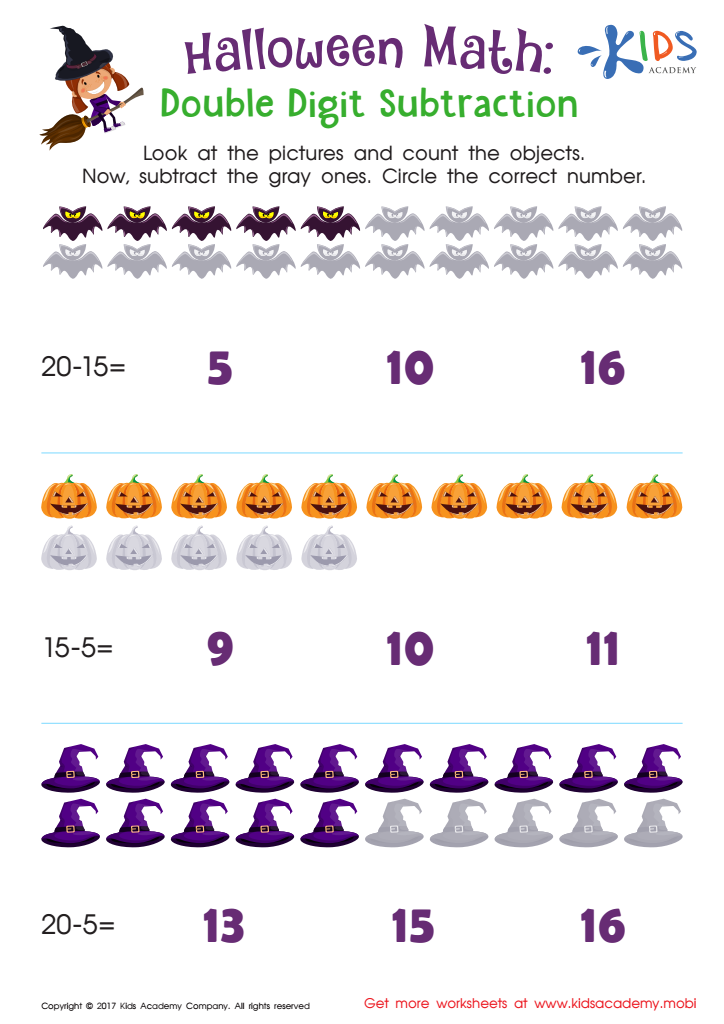

Halloween Math Subtraction Worksheet
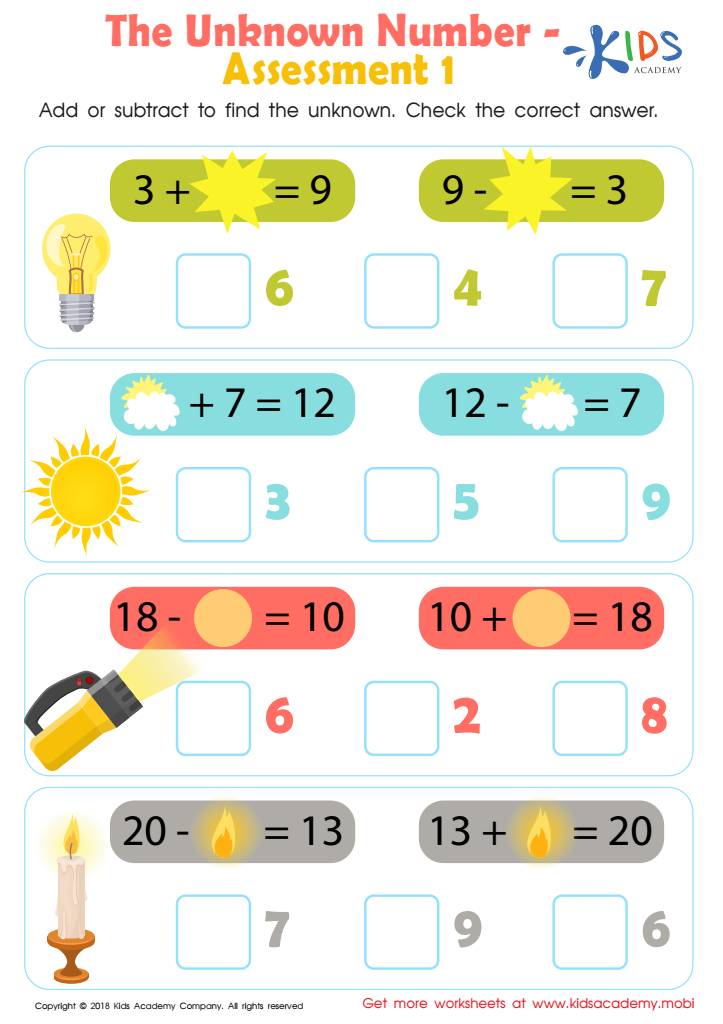

The Unknown Number: Assessment 1 Worksheet
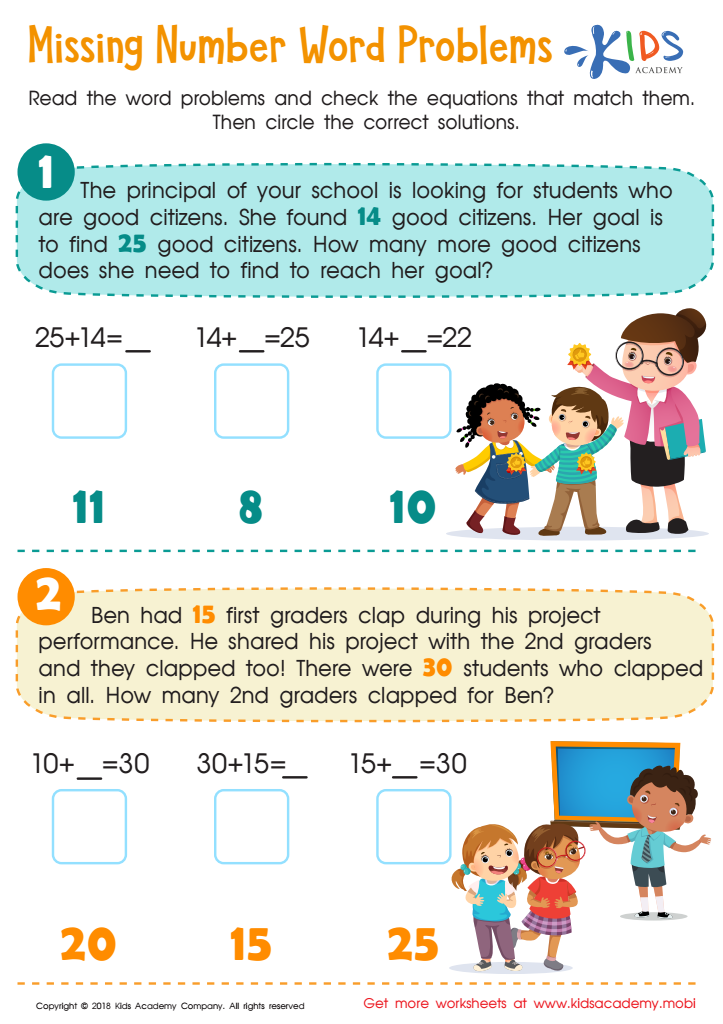

Missing Number Word Problems Worksheet
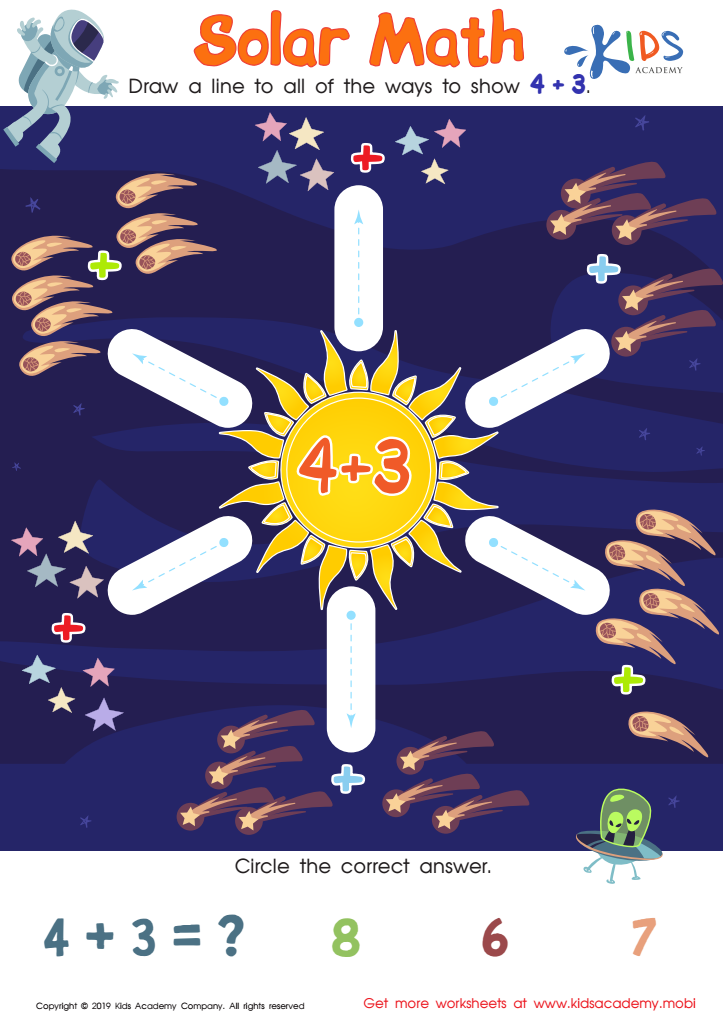

Solar Math Worksheet
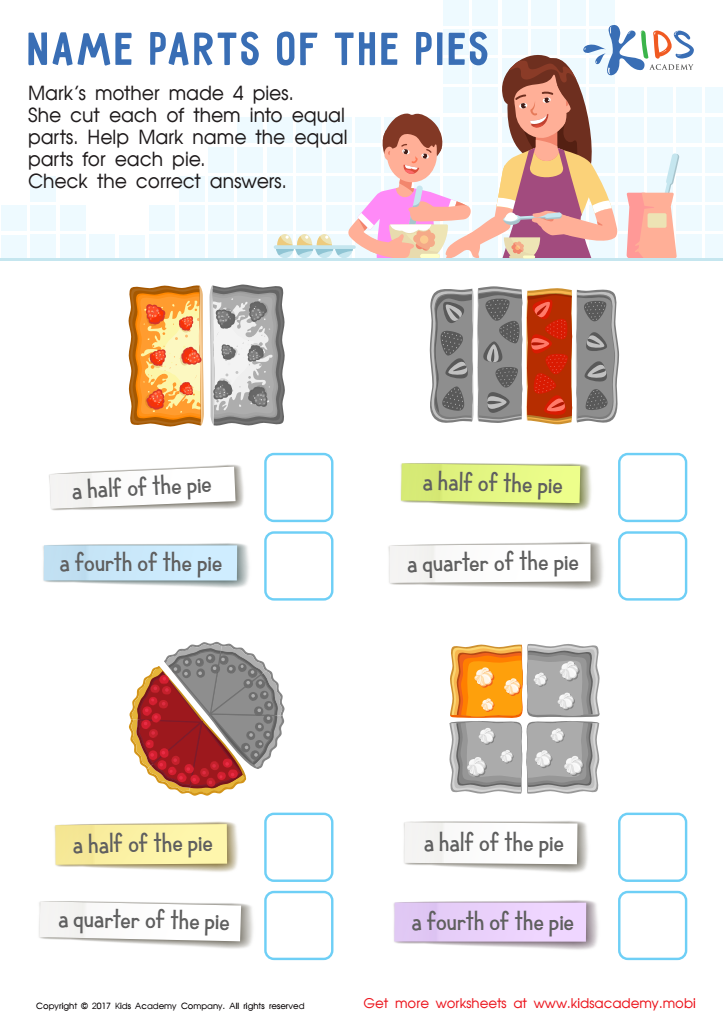

Name Parts of the Pies Worksheet
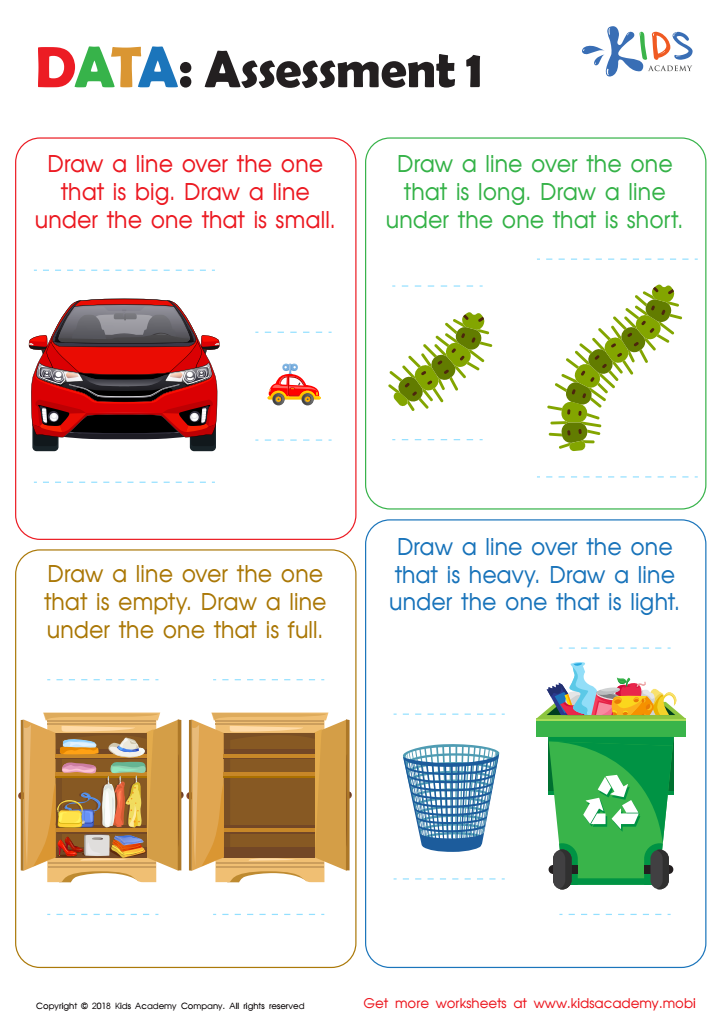

Data: Assessment 1 Worksheet
Mathematical problem-solving for ages 3-6 is pivotal for several reasons, making it essential for parents and teachers to emphasize it. First, this foundational skill enhances cognitive development, promoting logical reasoning and critical thinking from an early age. When children engage with math problems, they're encouraged to think analytically and systematically, skills that are transferable to other learning areas and real-life situations.
Second, early exposure to problem-solving boosts confidence and curiosity. By successfully solving puzzles or basic math problems, young children gain a sense of accomplishment, which nurtures a love for learning and exploration. This positive attitude towards mathematics can dispel the common fear or aversion to the subject that many develop later in life.
Furthermore, math problem-solving promotes creativity. Young children often use imaginative methods to approach problems, fostering innovative thinking. This creativity is invaluable, not just academically, but in everyday life—enhancing their ability to face and navigate challenges.
Lastly, early math proficiency has been linked to further academic success. Numerous studies show a correlation between early mathematical skills and later achievements in both math and literacy. By prioritizing mathematical problem-solving, parents and teachers are setting children up for a robust educational journey. It’s an investment in their ability to think deeply, solve problems efficiently, and approach the world with confidence and curiosity.
 Assign to My Students
Assign to My Students



















